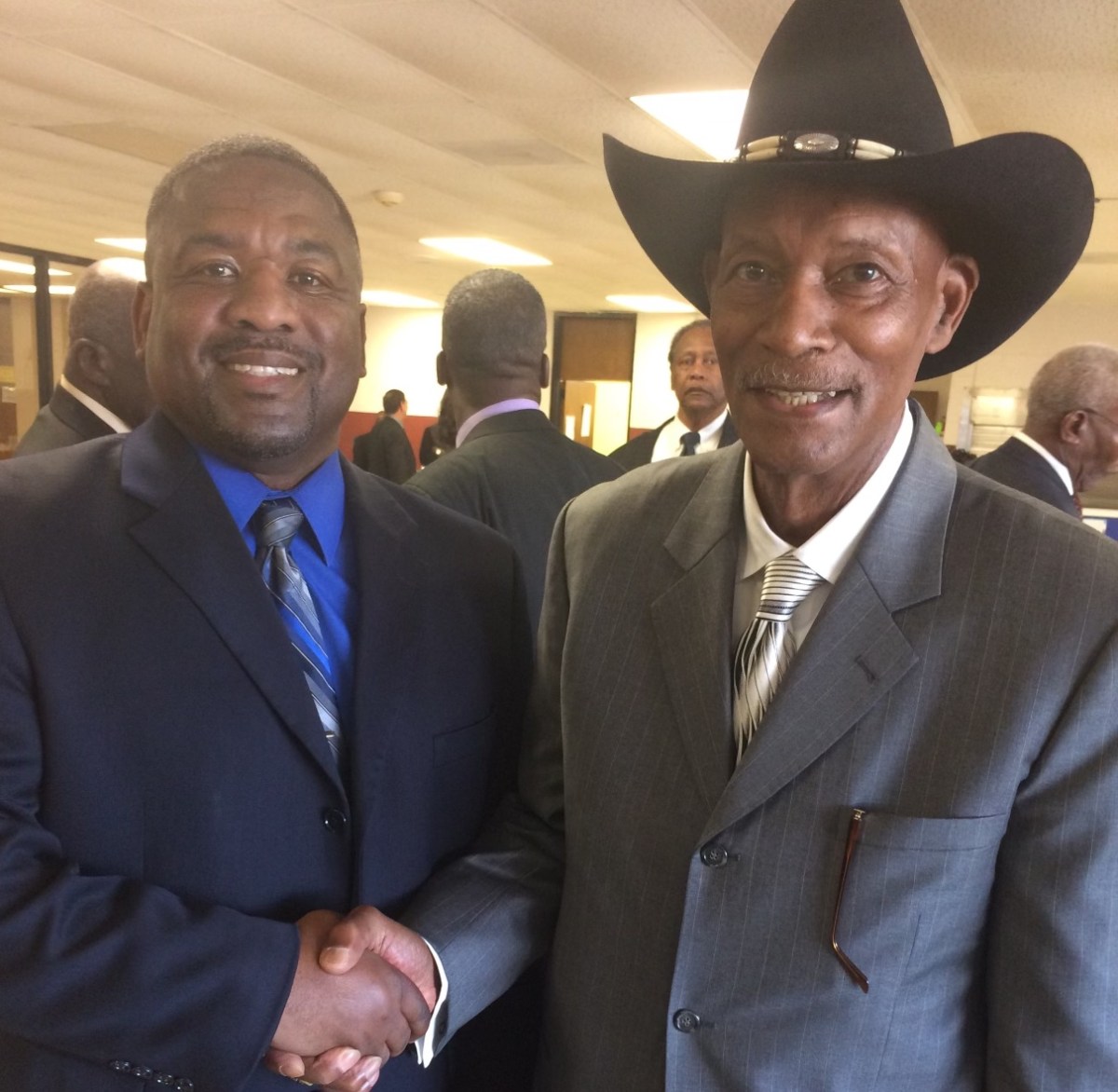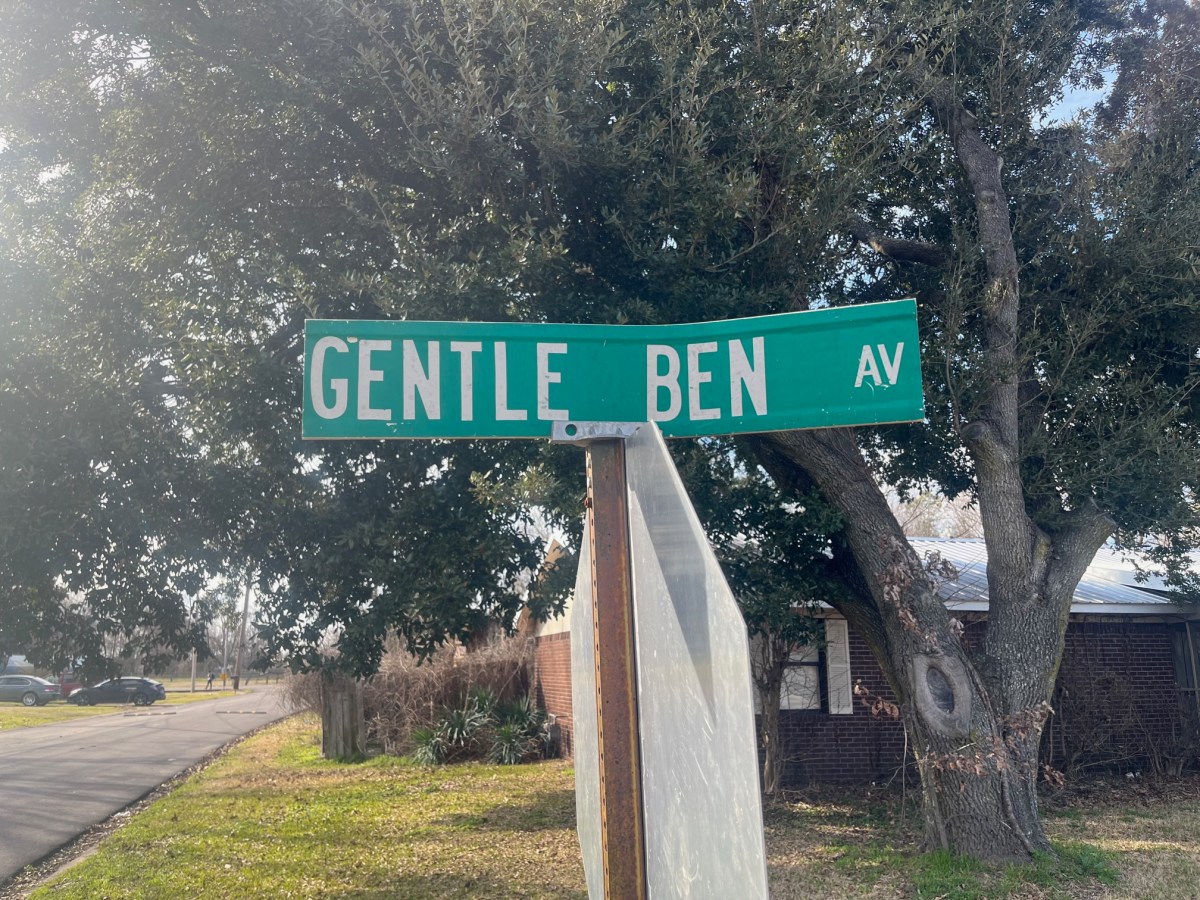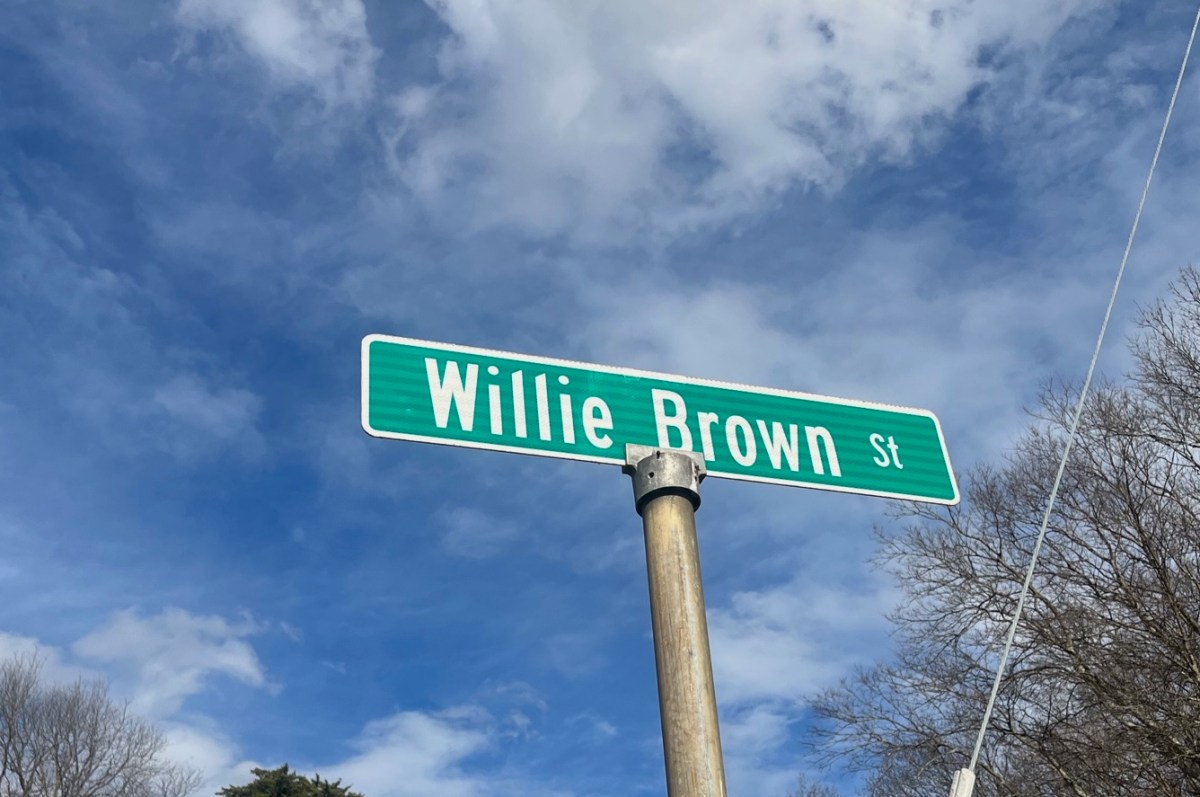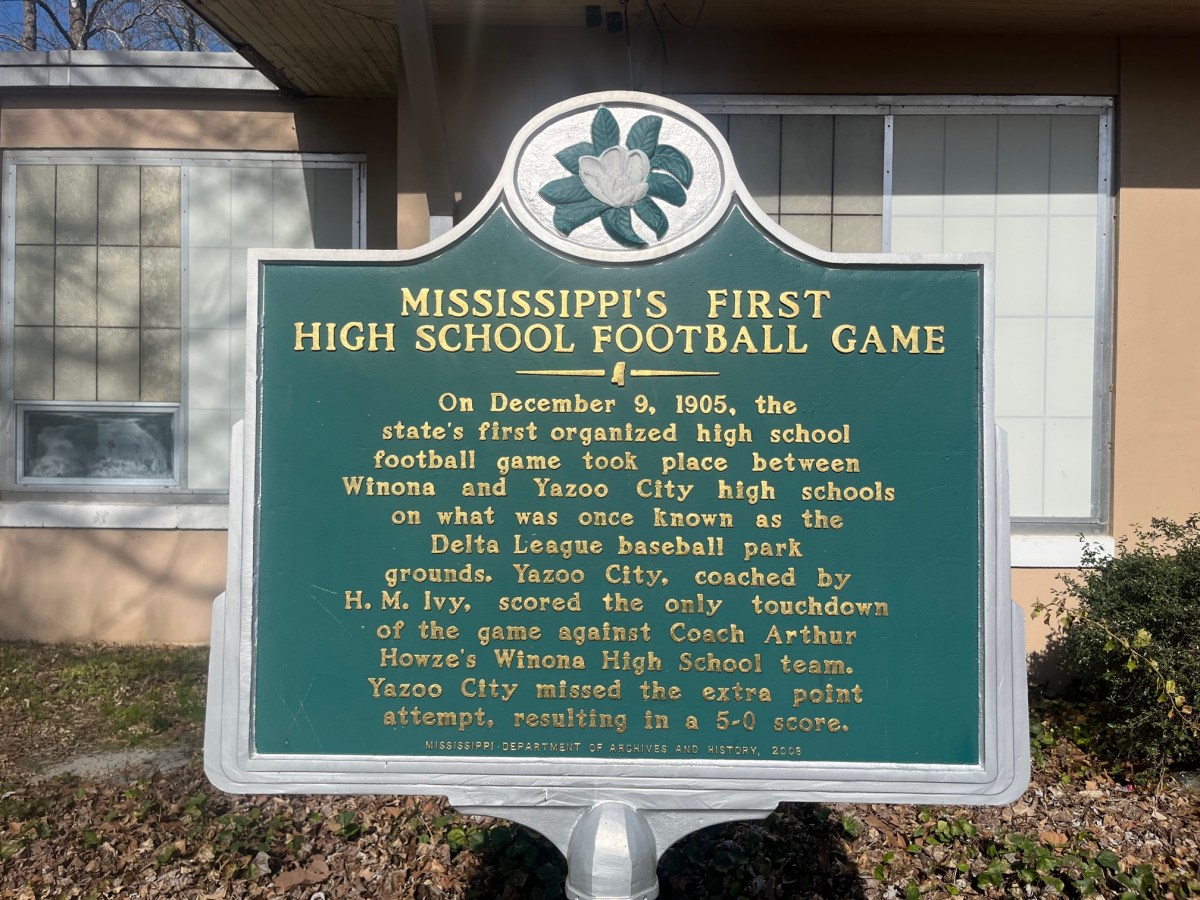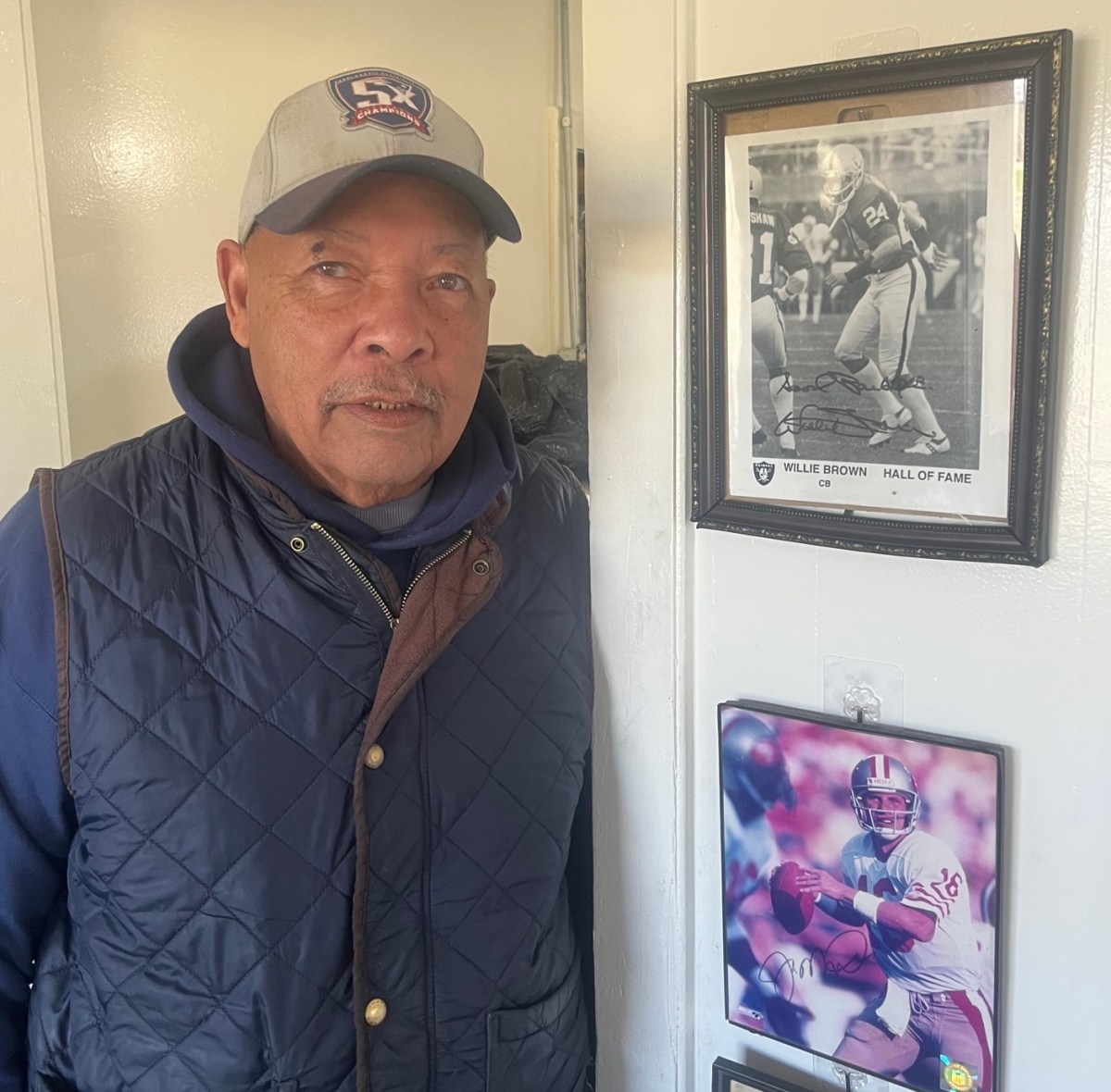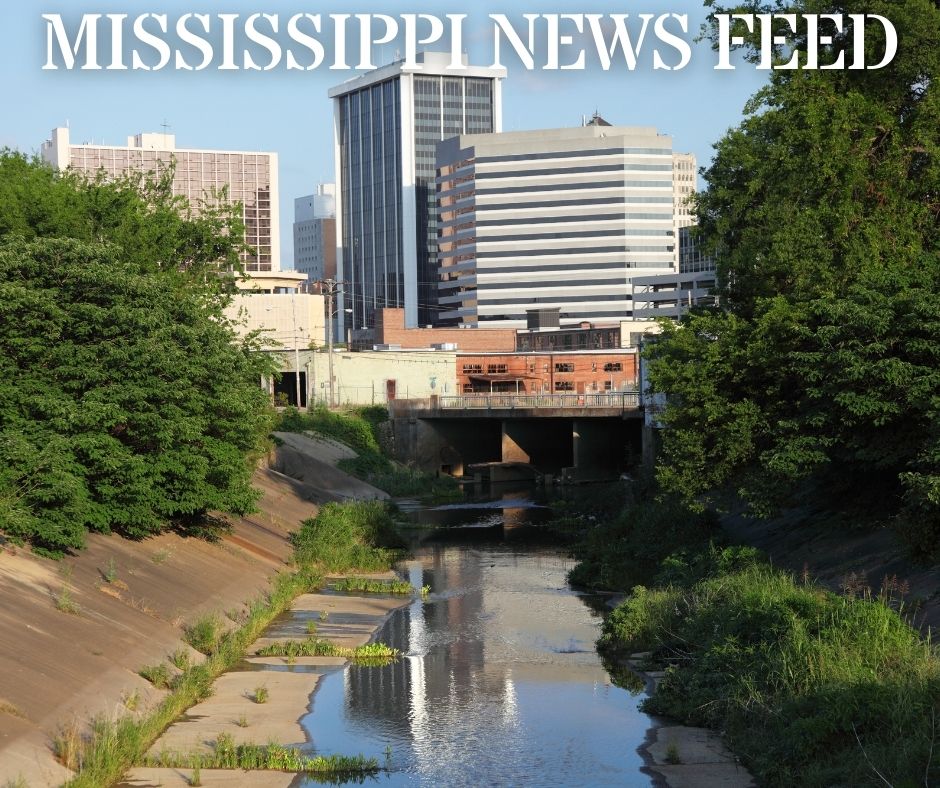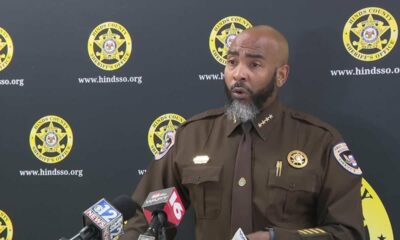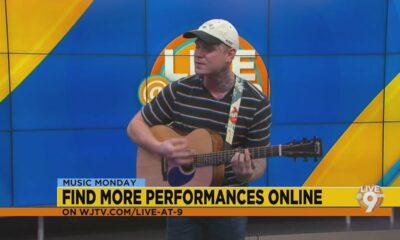Mississippi Today
Yazoo City: Home to two Super Bowl stars and so much football history
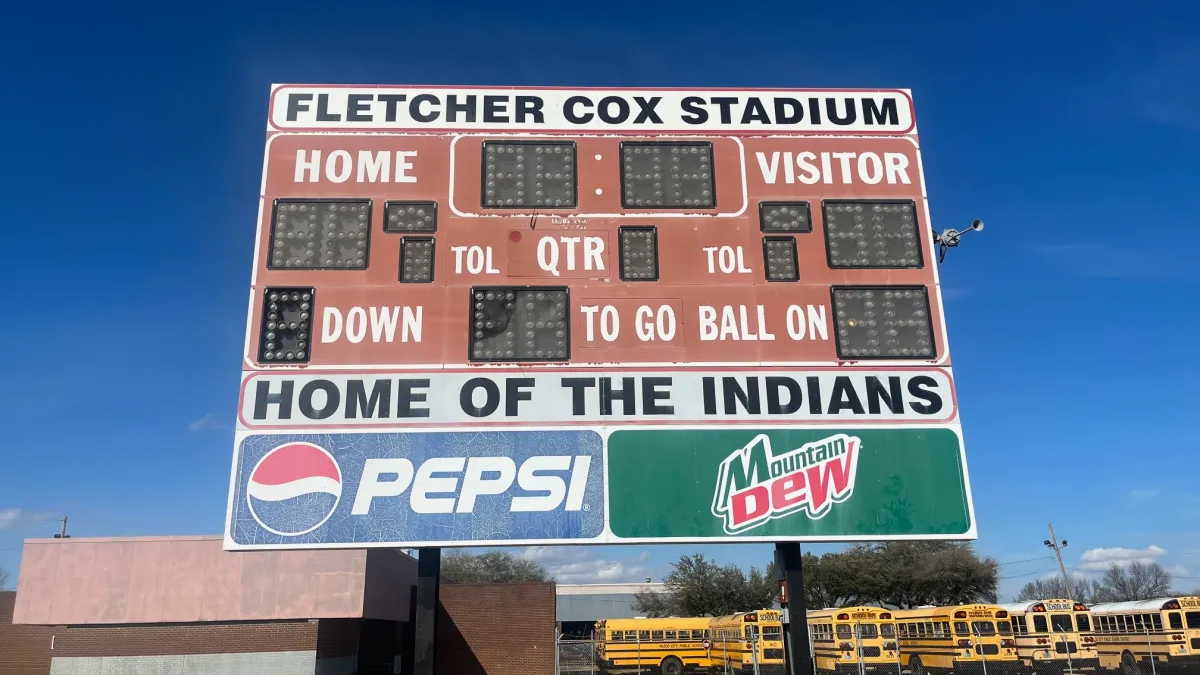
Yazoo City: Home to two Super Bowl stars and so much football history
YAZOO CITY – Today we take a football-themed tour of Yazoo City, birthplace and hometown of defensive tackle Fletcher Cox and running back Kenneth Gainwell, who will play for the Philadelphia Eagles in Sunday's Super Bowl.
That's right: This little town of about 10,000 residents on the southeastern edge of the Mississippi Delta produced two of the 96 players who will dress out for a game that will be watched by about 100 million viewers around the world.
Cox played at Yazoo City High, while Gainwell, a distant cousin, played at Yazoo County High, about eight miles south of town.
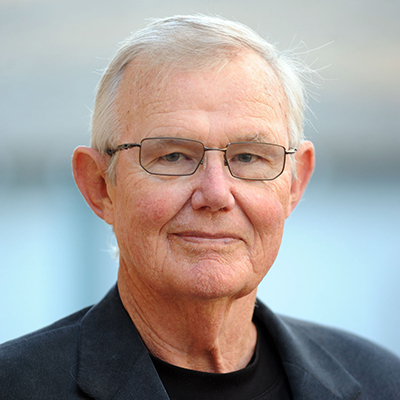
This seems an absolutely perfect time for this tour. Our guide is Yazoo City High School athletic director Tony Woolfolk, who played for the Yazoo High Indians, the Alcorn State Bravesand later was Cox's high school coach. We are to meet at the high school. But first, I drive into town on Jerry Clower Boulevard, named for the famous, countrified comedian, who before becoming famous, played tackle for Mississippi State. Clower once told me, “You remember when ol' Showboat Boykin scored seven touchdowns in one Egg Bowl for Ole Miss? Well, he stepped right on my big belly when he scored the last one.”
I take a left off Clower Boulevard onto Willie Morris Parkway, named for the great Mississippi author, once a Yazoo City halfback. Willie Morris described his hometown as “half Delta, half hills, all crazy.” Crazy about football, that's for sure. Willie once wrote a short story about high school football titled “The Fumble” and a book titled “The Courting of Marcus Dupree.” If you haven't read the story or the book, you should. Willie often described himself as “Yazoo City's other Willie” in deference to fellow Yazoo native Willie Brown, the Pro Football Hall of Famer and Oakland Raiders Super Bowl hero who died in 2019. Willie Morris would quickly tell you, “Willie Brown was only the greatest cornerback in football history.”
READ MORE: RIP Willie Brown, who never forgot Mushroom Street or Yazoo City
One more left turn gets us to the high school, where Woolfolk, a starting safety for the Alcorn Braves in the 1984 Alcorn-Mississippi Valley “Game of the Century,” is unloading soft drinks and snacks for that night's basketball game. He knows a thing or two about Yazoo City football history.
First, Tony shows me the Yazoo High trophy case with literally hundreds of sports trophies and plaques, including one saluting 1968 Big Eight Conference Player of the Year Larry Kramer, once one of the most promising running backs in Mississippi history before injuries slowed him at Ole Miss. There's another plaque that documents the retirement of Fletcher Cox's red and white Indians jersey number 54. Asked about the first time he ever set eyes on Cox, Tony answers, “It was the summer after his eighth grade year. There were a bunch of kids out on the field playing ball and one of them was at least a head taller and a whole lot faster than the rest of them. I pointed and said, ‘Who is that kid?' Somebody said, ‘That's Bug-eye Cox.'”
Bug-eye?
“Yeah, that's what everybody called him back then. His granny named him that because his eyes kind of bulged,” Tony says. “It stuck. Over time, I shortened it to Bug. I still call him Bug, but I knew the first time I saw him, we had us one — a potential superstar. Even then, he was bigger than everybody else and he could really, really run. You know Bug ran the 4 x 100 relay in track for us.”
I did not know that, but the idea of a 6-foot, 4-inch, 240-pound sprinter is kind of frightening. (Cox, a six-time Pro Bowler, now weighs 310.)
PODCAST: The ‘Sip in the Super Bowl
From the trophy case we move on to the football field at what is now called Fletcher Cox Stadium. We go through the locker room with nice wooden lockers provided by Bug-Eye himself. We go through the weight room with 10 racks of weights, all paid for by Fletcher Cox, who apparently does not forget where he comes from. “When Bug came through here, we only had two weight racks,” Tony says. “He wanted to make sure these kids have more.”
Tony says Fletcher's mom, who was a single parent, didn't want him to play high school football. “She was afraid he would get hurt,” Tony says. “I told her she didn't need to worry about that. The only concern was how many people he was gonna hurt.”
There have been a few, first at Yazoo, then at Mississippi State and finally with the Eagles, where he has played all of his 11-year career after being the 12th pick of the first round of the 2012 draft.
Our tour guide suggests a ride around Yazoo. He wants to show us where Fletcher grew up in an area neighborhood called Jonestown. We take River Road, which runs along side the Yazoo River, for which the town is named. We are actually searching for Fletcher Cox Street, going slowly by the street signs until we pass Gentle Ben Street named for Gentle Ben Williams, another remarkable defensive lineman from Yazoo, the first Black football player at Ole Miss and a 10-year star with the Buffalo Bills. Turns out, Ben Williams and Fletcher Cox grew up in the same neighborhood, only a few streets apart. That has to set records for defensive tackles per capita.
“I got a lot of my best players from Jonestown,” Tony says.
I tell Tony that Willie Morris used to tell me about the Brickyard Hill neighborhood, where Willie Brown grew up and where Mushroom Street has become Willie Brown Street. We head that way and I quickly learn where the “half hills” of Yazoo City are. Willie Brown Street tops one of the biggest hills.
Brown, who played for the legendary Eddie Robinson at Grambling, made one of the most iconic plays in Super Bowl history 45 years ago. That's when he intercepted Fran Tarkenton's pass and returned it 75 yards for a game-clinching touchdown in the Raiders' victory over the Minnesota Vikings.
Says Tony Woolfolk, “When I was growing up, Willie was everybody's hero in Yazoo City. I played in football shoes that Willie Brown sent home to us. They were shoes that the Raiders had already used, but they were like brand new to us. We were playing NFL shoes. It meant the world to us.”
Tony makes another stop on the way back to the school. We're at the Yazoo middle school, that sits in what used to be a public park in the early 1900s, Tony says. “Take a look at that sign over there,” Tony says.
So I do, and it commemorates the site of Mississippi's first organized high school football game played in 1905. Yazoo City won, of course, beating Winona 5-0.
There's just so much football history here in Yazoo. We haven't even mentioned the Heidel brothers (Jimmy, Ray and Roy) of Ole Miss fame; Houston Hoover (Jackson State), who played seven years in the NFL for three different teams; Elex Price (Alcorn State), an eight-year pro with the New Orleans Saints; or Gov. Haley Barbour, who played both football and baseball for the Yazoo Indians. We could go on and on, but it's time to go and Tony has a basketball game that evening.
I head back south toward Jackson, more than little hungry from all the sight-seeing. So I stop at the Hall of Fame Restaurant , a little spot I've long heard about on the east side of U.S. 49 in an area known as Little Yazoo. There, I am greeted by David Brown, who happens to be Willie Brown's older brother and the proprietor. The resemblance between David and his younger brother is startling.
I ask him, “Did you play football, too?”
“Man, I taught Willie how to play,” David says, smiling.
“Hungry?” he asks.
“Starving,” I said.
He shows me the menu, and there it is right there at the top. I order the Willie Brown Burger. Five minutes later, I get it, the biggest and surely one of the best burgers I've ever encountered. I tell David you could do bicep curls with that hamburger.
He smiles. “You ain't gonna be hungry for a while,” he says.
And he is right. I leave, sated both on the Willie Brown Burger and rich Yazoo history.
This article first appeared on Mississippi Today and is republished here under a Creative Commons license.
Did you miss our previous article…
https://www.biloxinewsevents.com/?p=207891
Mississippi Today
On this day in 1945


April 29, 1945

The memoir by Richard Wright about his upbringing in Roxie, Mississippi, “Black Boy,” became the top-selling book in the U.S.
Wrighyt described Roxie as “swarming with rats, cats, dogs, fortune tellers, cripples, blind men, whores, salesmen, rent collectors, and children.”
In his home, he looked to his mother: “My mother's suffering grew into a symbol in my mind, gathering to itself all the poverty, the ignorance, the helplessness; the painful, baffling, hunger-ridden days and hours; the restless moving, the futile seeking, the uncertainty, the fear, the dread; the meaningless pain and the endless suffering. Her life set the emotional tone of my life.”
When he was alone, he wrote, “I would hurl words into this darkness and wait for an echo, and if an echo sounded, no matter how faintly, I would send other words to tell, to march, to fight, to create a sense of the hunger for life that gnaws in us all.”
Reading became his refuge.
“Whenever my environment had failed to support or nourish me, I had clutched at books,” he wrote. “Reading was like a drug, a dope. The novels created moods in which I lived for days.”
In the end, he discovered that “if you possess enough courage to speak out what you are, you will find you are not alone.” He was the first Black author to see his work sold through the Book-of-a-Month Club.
Wright's novel, “Native Son,” told the story of Bigger Thomas, a 20-year-old Black man whose bleak life leads him to kill. Through the book, he sought to expose the racism he saw: “I was guided by but one criterion: to tell the truth as I saw it and felt it. I swore to myself that if I ever wrote another book, no one would weep over it; that it would be so hard and deep that they would have to face it without the consolation of tears.”
The novel, which sold more than 250,000 copies in its first three weeks, was turned into a play on Broadway, directed by Orson Welles. He became friends with other writers, including Ralph Ellison in Harlem and Jean-Paul Sartre and Albert Camus in Paris. His works played a role in changing white Americans' views on race.
This article first appeared on Mississippi Today and is republished here under a Creative Commons license.
Mississippi Today
Podcast: The contentious final days of the 2024 legislative session

Mississippi Today's Adam Ganucheau, Bobby Harrison and Geoff Pender break down the final negotiations of the 2024 legislative session's three major issues: Medicaid expansion, education funding, and retirement system reform.
This article first appeared on Mississippi Today and is republished here under a Creative Commons license.
Did you miss our previous article…
https://www.biloxinewsevents.com/?p=353661
Mississippi Today
Lawmakers negotiate Medicaid expansion behind closed doors, hit impasse on state budget
House and Senate Republicans continued to haggle over Medicaid expansion proposals Sunday, and the state budget process hit a snag after leaders couldn't reach final agreements by a Saturday night deadline on how to spend $7 billion.
House Speaker Jason White on Sunday told his chamber that Medicaid expansion negotiators from the House and Senate had been meeting and he expected a compromise “will be filed by Monday or Tuesday at the latest.”
House Medicaid Chairwoman Missy McGee said the Senate had delivered another counter proposal on expansion Sunday evening but declined to provide details. Her Senate counterpart, Medicaid Chairman Kevin Blackwell, declined comment on Sunday. The two leaders met in McGee's office on Sunday evening following a Saturday afternoon meeting.
READ MORE: House, Senate close in on Medicaid expansion agreement
Lawmakers have for the past couple of months been debating on how to expand Medicaid coverage for poor Mississippians and help the state's flagging hospitals. The House initially voted to expand coverage to an estimated 200,000 people, and accept more that $1 billion a year in federal dollars to cover the cost, as most other states have done. The Senate initially passed a far more austere plan, that would cover about 40,000 people, and would decline the extra federal money to cover costs.
Since those plans passed, each has offered counter proposals, but no deal has been reached.
A group of about 50 clergy, physicians and other citizens who support full expansion showed up at the Capitol on Sunday to sit in the Senate gallery and deliver letters to key leaders who are negotiating a final plan.
“When we stand before the Lord, he's not going to ask how much money did you save the state. He's going to ask you what you did for the least of these,” Monsignor Elvin Sounds, a retired Catholic priest, said outside the Senate gallery on Sunday.
READ MORE: A solution to the Republican impasse on Medicaid expansion
Lawmakers hit an impasse on setting a $7 billion state budget and missed Saturday night's deadline for filing appropriations bills. This will force the legislature into extra innings, and require lawmakers to vote to push back deadlines. Lawmakers had expected to end this year's session and leave Jackson by early this week. But House Speaker Jason White told his chamber on Sunday they should expect to continue working through Friday, “and possibly through Saturday or Sunday.
White later said of the budget impasse, “When you get to haggling over spending $7 billion, folks are going to have disagreements.”
Lt. Gov. Delbert Hosemann, who presides over the Senate, said “things are fluid. But everybody is working.”
He looked at his watch and said “It is 5 o'clock. By 6 o'clock what I tell you will have changed.”
White said one reason for the session having to run extra innings is that when he became speaker he vowed to House members that he would not continue the practice of passing much of the state budget last-minute, late at night or in the wee hours of the morning with little or no time for lawmakers to read or vet what they are passing.
He said the House was prepared early Saturday night to file budget bills with agreed-upon numbers, but not to file “dummy bills” with zeros or blanks and continue haggling a budget late into the night.
“I made a promise that we are not going to keep them up here until midnight, then plow through all these budget bills,” White said. “We had had a gentleman's agreement (between the House and Senate) earlier in the session to negotiate a budget by April 15. That didn't happen … We are not going to do everything last minute with no time for our members to read things and ask questions. We are not going to do it in the middle of the night.”
READ MORE: Senate negotiators a no-show for second meeting with House on Medicaid expansion
This article first appeared on Mississippi Today and is republished here under a Creative Commons license.
-
Local News4 days ago
Sister of Mississippi man who died after police pulled him from car rejects lawsuit settlement
-
Mississippi Today4 days ago
At Lake High School in Scott County, the Un-Team will never be forgotten
-
Mississippi Today1 day ago
On this day in 1951
-
Mississippi News2 days ago
One injured in Mississippi officer-involved shooting after chase
-
Mississippi News7 days ago
Cicadas expected to takeover north Mississippi counties soon
-
Mississippi News6 days ago
Viewers make allegations against Hatley teacher, school district releases statement – Home – WCBI TV
-
Mississippi News Video5 days ago
Vehicle struck and killed man lying in the road, Alcorn County sheriff says
-
Mississippi News4 days ago
Ridgeland man sentenced for molesting girl
